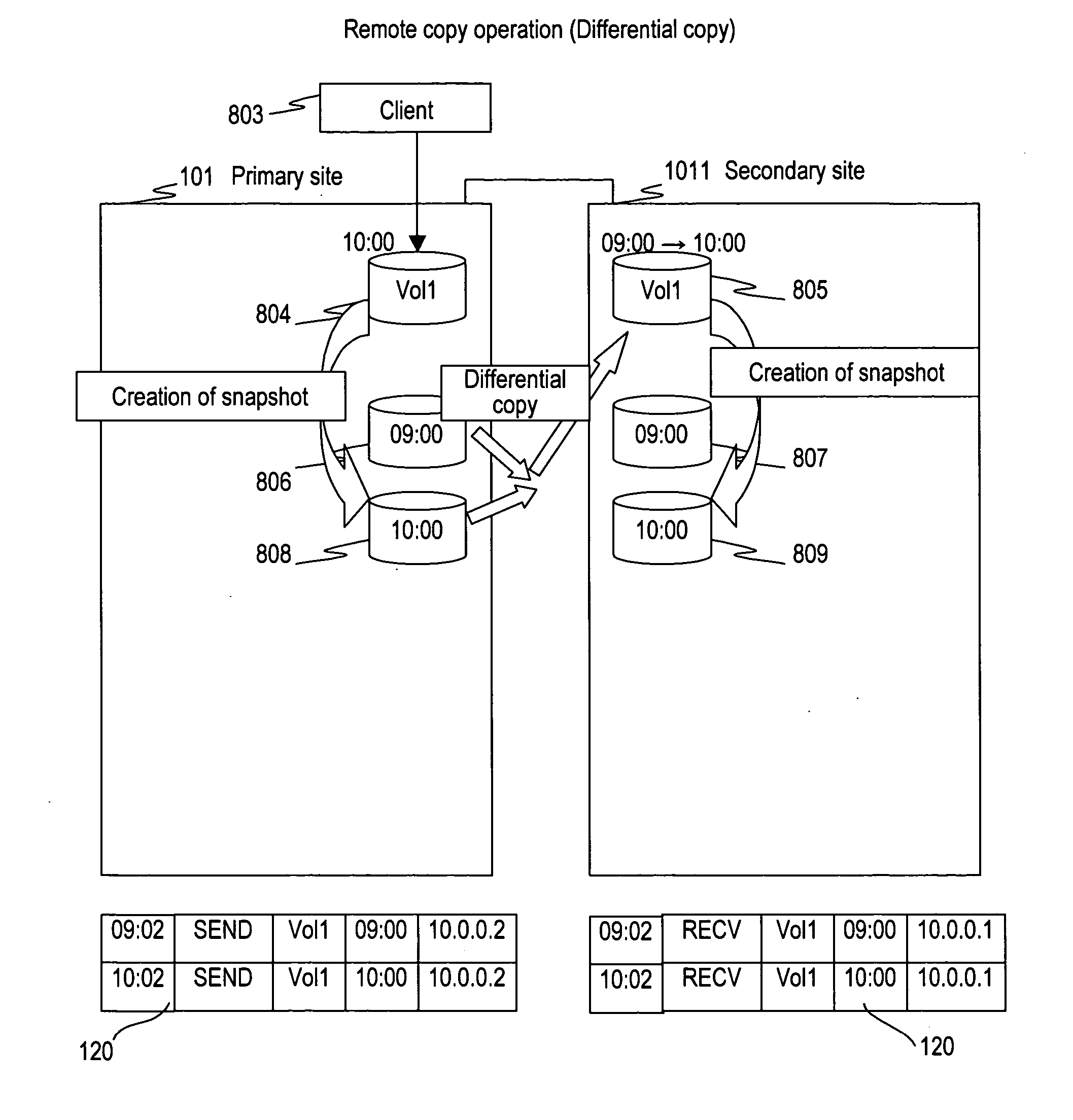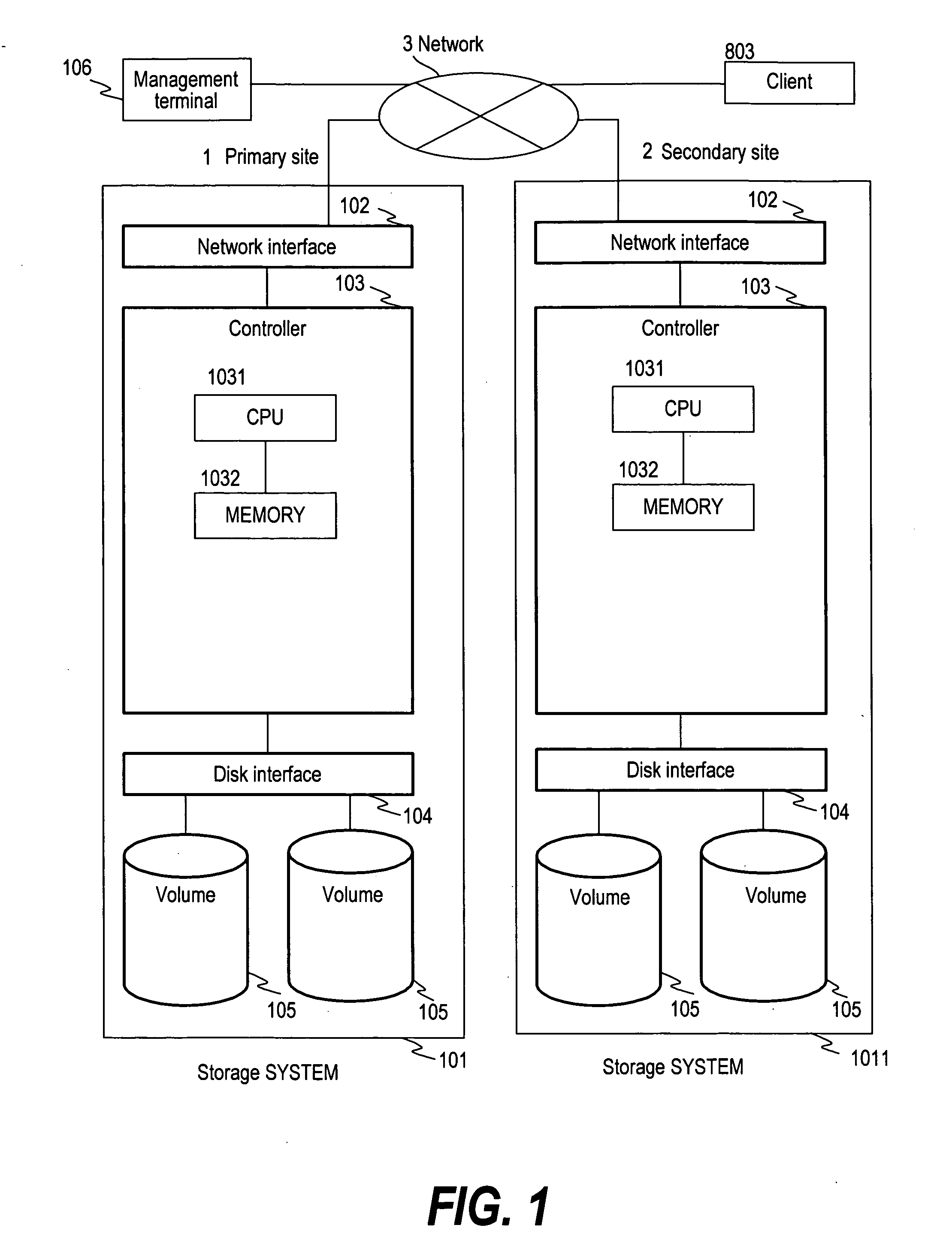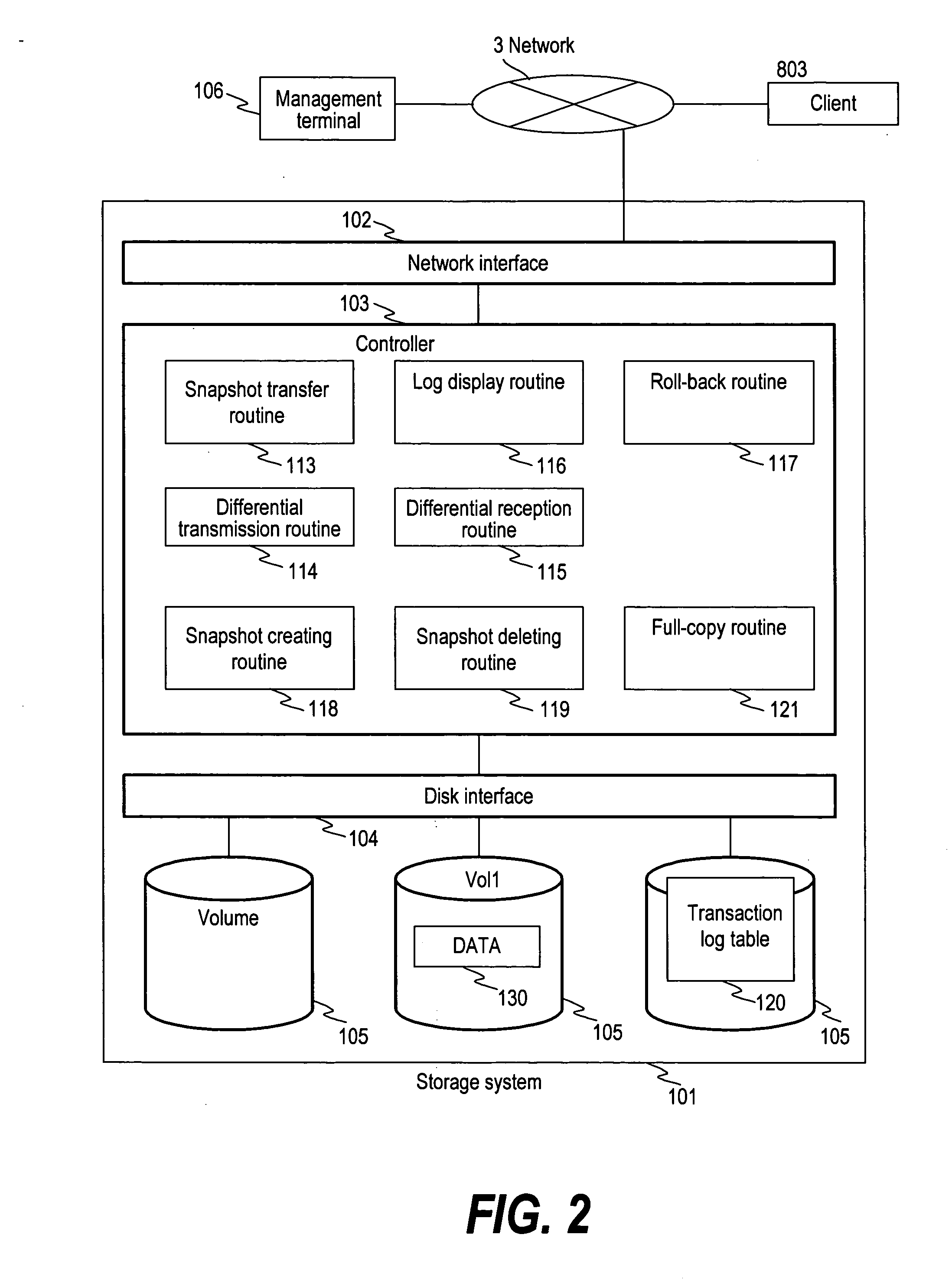Method for rolling back from snapshot with log
- Summary
- Abstract
- Description
- Claims
- Application Information
AI Technical Summary
Benefits of technology
Problems solved by technology
Method used
Image
Examples
second embodiment
[0080]FIG. 14 is a block diagram of the system as a second embodiment of this invention. This embodiment is different in the point that the transaction log table 120 is not stored in the volume 105 but to the memory 1032 of the controller 103.
[0081] An object of this embodiment is to enhance the performance of the remote copy by allocating the transaction log table 120 to the area ensuring high speed read and write operations.
third embodiment
[0082]FIG. 15 is a block diagram of the system as a third embodiment of this invention. This embodiment is different in the point that the transmission and reception history of differential data of the snapshot is not added to the transaction log table 120 but to the transfer attribute 122 of snapshot.
[0083] An object of this embodiment is to enhance the remote copy performance by allocating transmission and reception histories of snapshots to the area ensuring high speed read and write operations and to reduce the size of transaction log table 120 because transmission and reception history of the snapshot is also deleted when the snapshot is deleted.
fourth embodiment
[0084]FIG. 16 and FIG. 17 illustrate a fourth embodiment. In this embodiment, the storage systems 101, 1011 of the first embodiment includes the fail-back routine 131 to execute the fail-back process. The other structure is similar to the first embodiment.
[0085] In FIG. 16, the memory 1032 of the controller 103 is capable of loading and executing the fail-back routine 131 in accordance with a demand from the management terminal 106. The other structure is similar to the first embodiment.
[0086] When the storage system 101 at the primary site 1 restores from a failure, the management terminal 106 transmits a command to start the fail-back (restore) process to the storage system 1011 at the secondary site 2.
[0087] Upon reception of the fail-back process start command, the storage system 1011 drives the fail-back routine 131 illustrated in FIG. 17 to execute the fail-back (restore) process. Hereinafter, an example of the fail-back (restore) process to be conducted in the storage syst...
PUM
 Login to View More
Login to View More Abstract
Description
Claims
Application Information
 Login to View More
Login to View More - R&D
- Intellectual Property
- Life Sciences
- Materials
- Tech Scout
- Unparalleled Data Quality
- Higher Quality Content
- 60% Fewer Hallucinations
Browse by: Latest US Patents, China's latest patents, Technical Efficacy Thesaurus, Application Domain, Technology Topic, Popular Technical Reports.
© 2025 PatSnap. All rights reserved.Legal|Privacy policy|Modern Slavery Act Transparency Statement|Sitemap|About US| Contact US: help@patsnap.com



